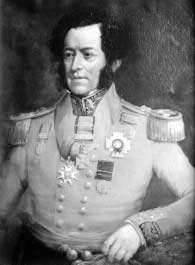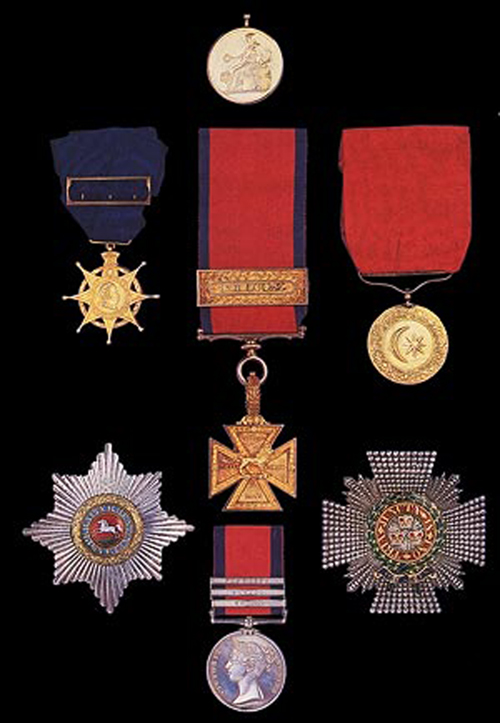Lieutenant General Sir John Rolt KCB GCH
1853-1856
 He received his first commission, as Ensign with the 58th (Rutlandshire)
Regiment of Foot, on 1st March 1800. Exactly one year later he was
fighting for his life on the beach at Aboukir Bay, Egypt.
He received his first commission, as Ensign with the 58th (Rutlandshire)
Regiment of Foot, on 1st March 1800. Exactly one year later he was
fighting for his life on the beach at Aboukir Bay, Egypt.
He was with the amphibious assault force which, under the command of Sir Ralph Abercromby, stormed ashore and assisted in the defeat of the French Army of occupation. The 58th lost fifty-eight dead and wounded that morning, and Rolt himself “was shot through the body”. Given the primitive medical techniques of the period, it was a near miracle that he survived.
Between 1802 and 1809, in the rank of Captain, he served with his regiment in Ireland, Naples, and the Channel Islands. In 1810, having arrived at Lisbon, he was promoted Major and transferred to the Portuguese Army.
He took part in the major siege operations at Cuidad Rodrigo and Badajoz and was then given command, in April 1812, of the 17th Portuguese Regiment for the final battles of the Peninsular war. Despite his earlier severe wound, he seems to have been blessed with a constitution of iron, it being recorded that “from 1809 to the conclusion of hostilities in April 1814, he was never one day absent from his duty”.
Over the ensuing thirty years he received various retrospective honours for his services under Wellington. The following list describes them, and it is representative of the range of distinctions available to successful field and general officers of that period: Knight Commander of the Order of the Bath, Grand Cross of the Guelphic Order of Hanover, Field Officer’s Small Gold Medal (for Vittoria), Military General Service Medal (clasps for Egypt, Busaco and Pyrenees), Knight of the (Portuguese) Military Order of the Tower and Sword, and the Sultan’s Gold Medal for Egypt, 1801. These awards appeared at auction in London in 1991 and were hammered at £16,000.
In 1823 he was appointed commanding officer of the 2nd or Queen’s Royal Regiment of Foot. Two years later he departed for a staff appointment and then retired from active service. He was granted the Colonelcy in 1853 but, sadly, his period of tenure was short. He died at Southernhay, Exeter, on 8th November 1856.
(Click to enlarge)
Medals of Lieutenant General Sir John Rolt
« Previous ![]() Back to list
Back to list ![]() Next »
Next »

